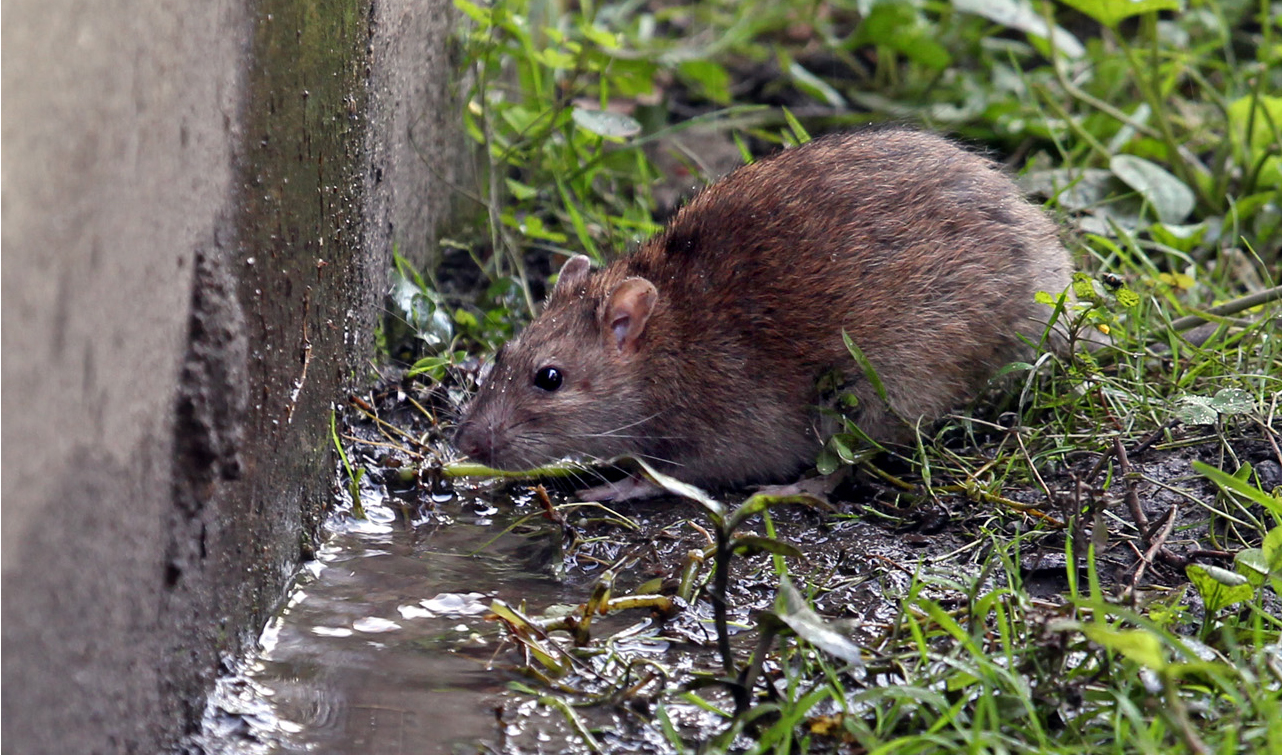
Boston Mayor Wu working to formalize rat czar position, administration official says
Mayor Michelle Wu’s administration is working to formalize the creation of a rat czar position in Boston, a rodent-killing job that would be handled by a current city employee already considered to be the lead on municipal pest-control operations.
Tania Del Rio, commissioner of inspectional services, said Tuesday that there have been discussions around elevating John Ulrich, assistant commissioner of ISD’s environmental services division, into the new role, with the aim of better coordinating the multiple city agencies tasked with carrying out rodent mitigation.
“I think of John as our rat czar in the city, and there are thoughts and conversations around amplifying that role and giving it that formal authority around coordinating, so more to come on that,” Del Rio said at a City Council committee hearing.
Dr. Robert “Bobby” Corrigan, an internationally recognized expert on rats and mice hired by the city as a consultant to develop a mitigation strategy plan, which he plans to submit as report later this month, said the rat czar has been “highly effective” for “rat management” since its inception in New York City last April.
New York’s $155,000 rat czar, Kathleen Corradi, a self-described anti-rat activist, works directly under the mayor’s office and coordinates with all of the departments that handle pest-control operations in that city, according to Corrigan, who has worked as a research scientist for city government there.
“If someone said to me, is a rat czar critical for city rat management, the answer is yes,” Corrigan said.
New York City does not have a standalone pest-control office, which Councilors Ed Flynn and Liz Breadon are pushing to create in Boston per a city ordinance considered at the day’s hearing. New York’s is a division of the health department.
Wu administration officials sent to testify effectively killed the proposal for a standalone office, opting instead for enhancements to the current multi-agency approach to pest control, much to the chagrin of Flynn, who had envisioned his year-long push for a rat czar as someone leading the new office.
Flynn said in his opening remarks that he was open to compromise, but said that he does not agree with the administration’s stance against establishing a new pest-control office, describing rat infestation as a “major public health emergency.”
Related Articles
Boston Mayor Michelle Wu fires back on North End restaurateurs over outdoor dining
Boston city councilor calling for hiring freeze amid economic uncertainty
Michelle Wu rolls out $4.6 billion budget to Boston City Council with property tax warning
Pols & Politics: Boston City Council attendance scrutiny rattles pols
City Council mulls raising max age for Police Academy to 45
“It’s a public safety emergency as well,” Flynn said. “I think it’s important to have a standalone department on pest control. I think we need to elevate this issue.”
Flynn said he was “frustrated” upon learning from administration officials that there was no weekend pest-control coverage from the 14 relevant city inspectors, saying that changes were needed since people more frequently gather then.
Dion Irish, chief of operations, said that while the administration agrees with most of the goals the ordinance is trying to achieve, and would look into weekend coverage beyond the one on-call inspector, “the fact of starting up a brand new office is the only thing that is problematic to me.”
“We see ISD as taking the lead on convening the departments under John’s leadership,” Del Rio said. “We are willing, able and happy to fill that role.”
Del Rio added that the administration was awaiting the recommendations from Corrigan’s report for a “Boston Rat Action Plan,” which it plans to use as a “roadmap” for mitigation.
Corrigan said eliminating food sources for rodents should be the city’s top priority, pointing to improper waste disposal he’s seen in Boston. Ulrich, the potential rat czar, said the city is facing challenges in that realm with absentee landlords and student housing.
After Breadon mentioned that rats can chew through the trash bins of residents and landlords trying to adhere to mitigation measures, Corrigan said stainless steel bins are really the only rat-proof option, although certain types of plastic work well.
Also discussed as potential mitigation measures were dry ice, carbon monoxide, and contraceptive-laced bait, the latter of which was tested in New York City and could prove to be costly if tested on a citywide basis in Boston, Corrigan said.
Councilors participating in the hearing all agreed that Boston has a rat problem, but it was unclear where many of them stood on the proposed ordinance.
Julia Mejia, an at-large councilor, sent an absence letter saying she was in support of establishing a new pest-control office, but Council President Ruthzee Louijeune said she wasn’t sure if further “bureaucracy” was the right approach.
Councilor Gabriela Coletta, who chaired the government operations committee hearing, said further conversation would be informed by Corrigan’s report.
“A warming climate is ripening the conditions for not just rats, but all pests, bed bugs,” Coletta said while calling for a more proactive approach with the understanding that more waste will be produced while it gets warmer.
“I just think it’s going to be a calamity of events,” Coletta said, “that lead us to potentially what happened in Paris.”
Boston Mayor Michelle Wu (Stuart Cahill/Boston Herald, File)


